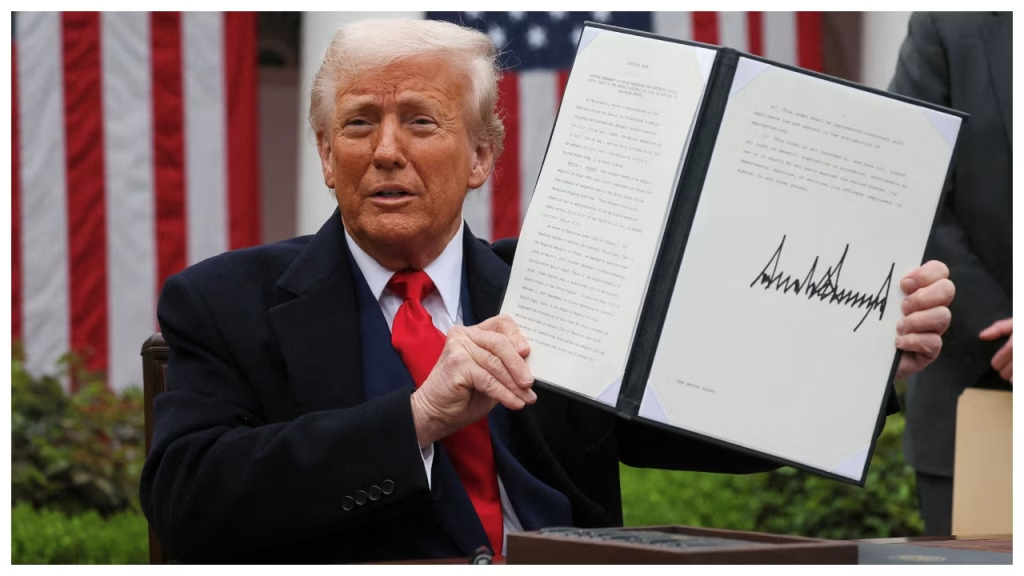In a development that’s shaking confidence on Wall Street and beyond, JP Morgan has sounded the alarm on a potential U.S. recession this year—largely driven by the newly announced tariffs by President Donald Trump.
In a note to investors released Friday evening, Michael Feroli, the firm’s Chief U.S. Economist, warned that the American economy is likely to contract under the growing burden of these tariffs. He also predicted that the unemployment rate could climb to 5.3%, a troubling figure that would mark a significant shift from current levels.
This sobering outlook came just days after President Trump, on April 2, unveiled a sweeping tariff plan. As part of a broader effort to recalibrate America’s trade relationships, the administration will now impose a 10% tariff on imports from all countries starting April 5.

In a more aggressive move, beginning April 9, countries with the largest trade deficits with the U.S. will face individualized and higher tariffs.
READ ALSO: German Defender, Mats Hummels Announces Retirement
India finds itself in that category, now facing a 26% tariff on all its exports to the U.S. While the figure initially circulated as 27%, a correction later brought it down to 26%. Still, this marks one of the steepest tariff hikes in recent memory.
Federal Reserve Chair Jerome Powell also weighed in on Friday during a business journalism conference, expressing deep concerns about the broader economic impact of these new trade measures. Powell noted that the tariff increases are not only larger than anticipated, but also likely to inflict more serious economic damage than previously estimated.

“While uncertainty remains high, what’s becoming clear is that these tariffs will have a more severe impact on growth and inflation than we had forecasted,” Powell stated. He added that this shift could complicate the Fed’s ability to manage inflation and maintain economic stability.
READ ALSO: Trump’s Global Tariffs Could Shrink Trade by 1%, Warns WTO Chief
Interestingly, global brokerage firm Jefferies offered a somewhat more optimistic view—at least in relation to India. The firm pointed out that several of India’s leading export sectors, including information technology (IT) services, pharmaceuticals, and automobiles, are unlikely to be directly affected by the tariffs.
In a note to clients, Jefferies described the 26% tariff as “reasonable” in a comparative global context. However, the firm also warned that the broader slowdown in the U.S. economy poses a bigger concern for India’s exporters, especially those in the IT services sector.

“The tariff on India may seem harsh, but it’s manageable relative to what others are facing,” the report said. “The larger issue is that if the U.S. economy stumbles, demand for Indian IT services and other exports could decline significantly.”
As the dust settles from this wave of trade policy changes, one thing is becoming increasingly clear: the global economy is bracing for turbulence, and the road ahead for both the U.S. and its key trading partners may be more uncertain than ever.
Follow us at ScoopHub for ongoing updates on global trade, business trends, and economic insights.
Discover more from Scoop Hub
Subscribe to get the latest posts sent to your email.

